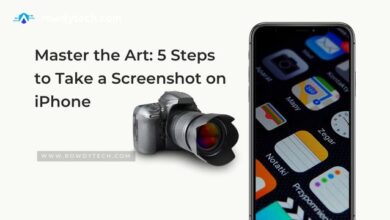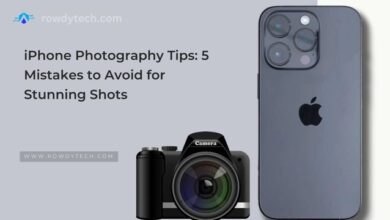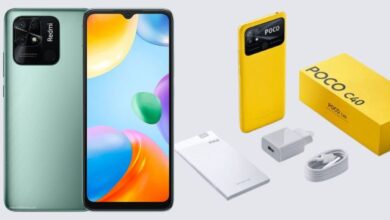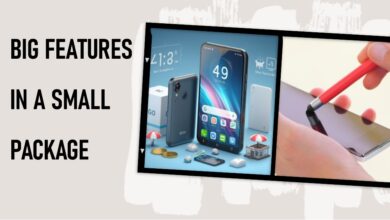iPhone vs Android: 5 Reasons to Choose Each
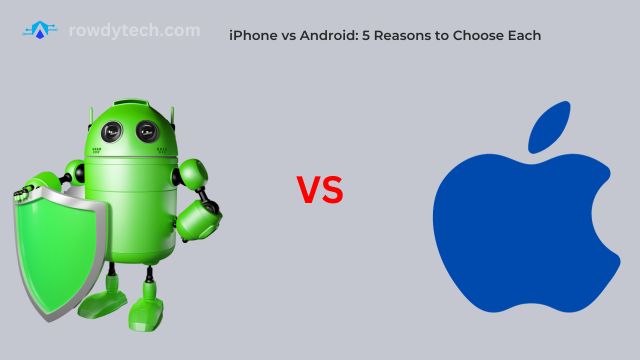
In the world of smartphones, the debate between iPhone and Android is a never-ending one. Both have carved out significant market shares and have loyal user bases. But when it comes to choosing between iPhone and Android, the decision isn’t always straightforward.
The iPhone, Apple’s flagship device, is known for its sleek design, seamless user experience, and high-quality App Store. On the other hand, Android, backed by Google and used by various manufacturers, is celebrated for its customization options, Google integration, and wide range of devices.
This article aims to provide an unbiased comparison of iPhone and Android, covering various aspects such as design, performance, software, security, and affordability. Whether you’re a tech enthusiast wanting to know more or someone trying to decide on your next smartphone purchase, this comprehensive guide will help you understand the strengths and weaknesses of both platforms.
Stay tuned as we delve deeper into the iPhone vs Android debate, providing insights that will help you make an informed decision. Let the comparison begin!
History and Evolution : iPhone vs Android
The story of iPhone and Android is a tale of continuous innovation and rivalry. The iPhone was first introduced by Apple in 2007. Since then, Apple has released 42 different iPhone models, including the latest iPhone 15. Each new model brought with it advancements in technology, design, and user experience, making iPhones a popular choice among consumers worldwide.
On the other hand, Android’s journey began in 2003 when Android Inc. was co-founded by Andy Rubin, Rich Miner, Nick Sears, and Chris White. Google acquired Android Inc. in 2005 and continued to develop the OS. The first public Android Beta Version 1.0 was published on November 5, 2007. Android has since become the most popular mobile operating system globally, thanks to its open-source nature and compatibility with a wide range of devices.
Both iPhone and Android have evolved significantly over the years, introducing new features and improvements with each update. Their continuous evolution has shaped the smartphone industry and continues to influence how we interact with technology today.
Design and User Interface
When it comes to design and user interface, both iPhone and Android have distinct approaches.
The iPhone is renowned for its sleek, minimalist design. Its user interface is intuitive and user-friendly, emphasizing simplicity. The most recent iPhone models, including the iPhone 15, uphold this tradition with a uniform layout that adjusts to various contexts, enhancing user accessibility. Every design element is meticulously positioned for optimal clarity and functionality.
Conversely, Android provides a highly customizable user interface. With Android 12, Google has revamped the entire user experience, encompassing shapes, lighting, motion, and adaptable system colors. The interface feels more expansive and inviting, presenting a lively, fluid, and individualized operating system. Android’s open-source ethos fosters a plethora of designs and interfaces, appealing to a broad spectrum of users.
In summary, while the iPhone champions simplicity and ease of use, Android stands out with its customization and personalization capabilities. Each platform offers unique strengths, catering to varied user inclinations.
Hardware and Performance
When considering hardware and performance, both the iPhone and Android have demonstrated remarkable advancements.
The iPhone 15 Pro Max stands out as the flagship model, featuring the largest display, a potent chipset, and top-tier cameras. It excels in battery longevity and introduces a new 5x zoom camera. Powered by the A17 Pro chip, the iPhone 15 Pro Max delivers unparalleled performance, especially beneficial for gaming enthusiasts. Additionally, the iPhone 15 is equipped with 5G capabilities and showcases a vibrant OLED display.
Here’s a comparison table for the latest processors based on their AnTuTu scores and power consumption:
| Processor | AnTuTu Score | Power Consumption |
|---|---|---|
| Dimensity 9300 (MediaTek) | 2,238,316 | TBD |
| Snapdragon 8 Gen 3 (Qualcomm) | 1,958,738 | TBD |
| A17 Pro (Apple) | 1,547,067 | TBD |
| A16 Bionic (Apple) | 1,452,654 | TBD |
| Dimensity 9200 Plus (MediaTek) | 1,507,980 | TBD |
| Snapdragon 8 Gen 2 (Qualcomm) | 1,523,428 | TBD |
| Dimensity 9200 (MediaTek) | 1,441,263 | TBD |
| Dimensity 8300 (MediaTek) | 1,526,268 | TBD |
| A15 Bionic (Apple) | 1,275,713 | TBD |
| Snapdragon 8 Plus Gen 1 (Qualcomm) | 1,275,880 | TBD |
On the Android front, the Dimensity 9300 from MediaTek and the Snapdragon 8 Gen 3 by Qualcomm emerge as leading processors. Android 12, the most recent iteration, enhances system efficiency, offering a more fluid and responsive user interface. The system’s quick and fluid animations ensure seamless interaction between the user and the device.
| Features | iPhone | Android |
|---|---|---|
| Design | Sleek, minimalist design | Diverse, customizable design |
| User Interface | User-friendly, intuitive | Customizable, diverse |
| Hardware | High-quality, consistent across models | Varies across manufacturers |
| Performance | High performance, smooth user experience | Depends on the device and manufacturer |
| Software Updates | Regular, consistent updates | Varies by device, some may have delayed updates |
| Security | Strong security features | Security depends on the device and manufacturer |
| Privacy | High emphasis on user privacy | Privacy features vary by device |
| Price | Generally more expensive | Wide range of prices, from budget to high-end |
In summary, both the iPhone and Android platforms present impressive hardware and performance metrics, addressing a wide range of user requirements and tastes.
Security and Privacy
In terms of security and privacy, both iPhone and Android have advanced considerably.
Apple embeds security and privacy measures into every new product and feature from inception. Recent enhancements encompass significant updates to Safari’s Private Browsing, Communication Safety, and Lockdown Mode, along with refined app privacy controls. Apple’s introduction of features like Check In, NameDrop, and Live Voicemail further underscores its commitment to viewing privacy as an inherent human right, emphasizing the intertwining of robust security with effective privacy safeguards.
Conversely, Android is bolstering its security and privacy arsenal. The newest Android iteration, Android 13, refines system responsiveness and user interface fluidity. The system ensures apps have limited permissions, granting access only to essential data pertinent to their functionalities.
To sum up, both iPhone and Android have fortified their platforms with comprehensive security and privacy features, addressing diverse user concerns and preferences.
Price and Affordability
Regarding price and affordability, both the iPhone and Android accommodate a diverse spectrum of budgets.
Apple’s iPhone models are often associated with premium pricing. The flagship iPhone 15 Pro Max, with its advanced features, is positioned in a higher price bracket. Nonetheless, Apple offers more economical alternatives, such as the iPhone SE and previous-generation models, at discounted rates. Furthermore, promotional offers, including immediate discounts on specific models through designated bank credit cards and No Cost EMI schemes, are periodically available.
In contrast, the Android market encompasses a broad price range, ensuring accessibility for various financial demographics. While high-end Android devices like the iQOO 12 5G, equipped with the Snapdragon 8 Gen 3 chipset, rival premium iPhones in cost, Android’s true versatility shines in its array of budget-friendly offerings. Devices such as the Xiaomi Redmi 13C and POCO C51 exemplify this by delivering commendable features at more affordable price points.
In summary, iPhones, though generally pricier, provide unparalleled quality and innovation. Android devices, with their expansive pricing options, democratize smartphone access, appealing to a wider array of consumers.
Conclusion
In the end, the choice between the iPhone and Android boils down to personal preference. Both platforms offer impressive features and capabilities, each excelling in different areas.
The iPhone is known for its sleek design, user-friendly interface, and premium quality. It’s a great choice for those who value simplicity, seamless integration with other Apple devices, and top-tier performance.
Android, on the other hand, offers a wide range of devices at various price points. Its strength lies in its diversity and customization options, making it a popular choice among tech enthusiasts.
Both platforms have made significant strides in areas like performance, security, and privacy. As they continue to evolve, we can expect even more innovative features and improvements in the future. Ultimately, the best platform is the one that meets your specific needs and preferences.
Frequently Asked Questions (FAQs)
Here’s a refined version of your queries and answers:
Which is better, Android or iPhone?
The decision between Android and iPhone hinges on individual preferences. While both platforms provide smooth and intuitive experiences with overlapping features, some users gravitate towards Android for its extensive customization options and a diverse range of devices spanning various price points. Conversely, many are drawn to iPhones due to their impeccable design, robust performance, and seamless synchronization with other Apple products.
Which phone is best in the world?
In 2023, both the Samsung Galaxy S23 Ultra and the iPhone 15 Pro Max are esteemed as premier contenders in the global smartphone landscape.
Who uses more, iPhone or Android?
On a global scale, Android dominates the market share. However, in the U.S., iOS maintains a significant lead over Android.
Which mobile is rank 1 in the world?
As of 2023, Samsung claims the top position as the world’s leading mobile brand.
Who is no 1 smartphone?
The title of the ultimate smartphone can fluctuate based on specific metrics. Yet, in 2023, the Samsung Galaxy S23 Ultra and the iPhone 15 Pro Max frequently emerge as frontrunners in rankings.
Which is the No 1 Android phone?
The Google Pixel 8 Pro and the Samsung Galaxy S23 Plus are frequently heralded as the foremost Android offerings.
Why do people buy iPhone?
The allure of iPhones spans various facets. Some are captivated by the device’s elegant design, superior components, multimedia capabilities, and the expansive App Store. Others prioritize the consistent software updates and enhanced security features. Additionally, the ownership of an iPhone occasionally serves as a symbol of prestige and status in certain circles.

